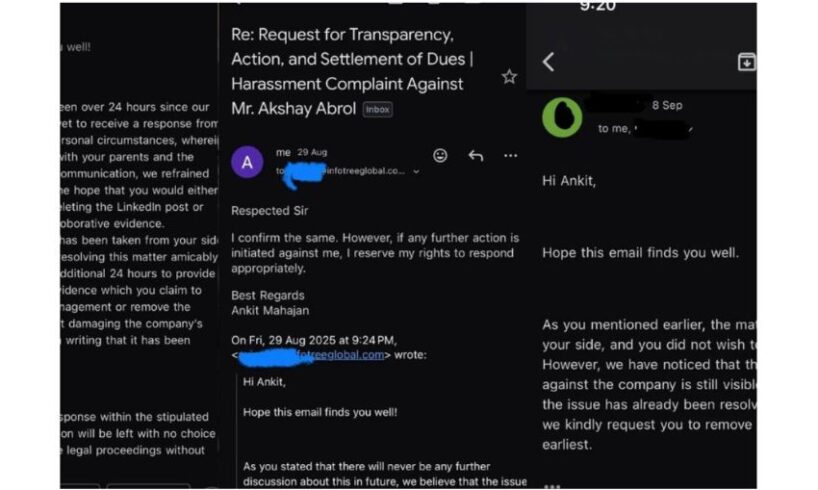
- Ex-Employee Claims Unethical Practices, Company Threatens Legal Action Over LinkedIn Post
The Incident
A former employee has alleged facing unethical practices and workplace insults at his previous organization. To share his experience, he turned to professional and social platforms like LinkedIn and Reddit, detailing the challenges he endured during his tenure.
While the post gained attention for shedding light on workplace culture, it also drew a strong reaction from the company.
Company’s Response
The organization in question reportedly viewed the post as defamatory and harmful to its reputation. In a firm response, the company issued a warning, demanding the employee delete the LinkedIn post within 24 hours or face legal consequences.
According to sources, the company believes that such public allegations can misrepresent facts and negatively impact its credibility in the market.
Both Perspectives
The controversy has sparked debate across professional networks:
- Employee’s Viewpoint: Speaking out was not about defamation but about truth, dignity, and ensuring others don’t face similar challenges. Employees argue they deserve a safe space to call out toxic culture without fear of retaliation.
- Company’s Viewpoint: From the organization’s side, public allegations may appear one-sided and damaging, especially if not substantiated with evidence. Companies feel the need to defend their image against statements they believe mislead stakeholders.
The Larger Debate: Voice vs. Reputation
This incident raises an important question for the corporate world:
Should employees always be protected when speaking up about workplace issues?
Or do companies also have the right to safeguard their reputation against potentially exaggerated or misleading claims?
Experts believe the answer lies in transparency, safe grievance mechanisms, and ethical leadership that ensures issues are addressed internally before they escalate publicly.
What next
The clash between employee rights and corporate reputation continues to be a gray area. What’s clear, however, is that silencing voices does not solve workplace issues. Instead, organisations need to foster environments where concerns are heard, addressed, and resolved with fairness.
As discussions around ethical workplaces, employee well-being, and freedom of speech gain momentum, this case serves as a reminder that the true strength of a company lies in its ability to listen — not threaten.
Also read: How To Know The Real Reason of Headache?
